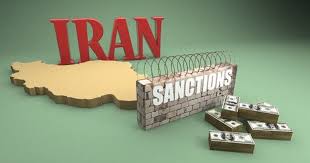Acteon Pays $441,000 to Settle Two OFAC Enforcement Actions

We can add Acteon to the list of OFAC settlements for 2019, which is quickly turning into a robust sanctions’ enforcement year. Acteon is a UK based company, which provides subsea services in the oil and gas industry. (Acteon recently announced the acquisition of Benthic, an Australian owned subsea company, which operates out of Houston, Texas).
In the first enforcement action, Acteon and its operating company 2H Offshore Engineering, agreed to pay $227,500 to settle an OFAC enforcement action for seven apparent violations of the Cuban Sanctions program. Between 2011 and 2012, 2H Offshore’s Malaysian affiliate (2H Offshore KL) produced analytical reports, and sent employees to Cuba to present these reports relating to oil exploration projects in Cuban territorial waters. The reports were prepared in connection with a project managed by Petronas, Repsol, PDVSA Cuba, and JSC Zarebezhneft.
2H Offshore’s violations involved misconduct by its former Global Director who was responsible for oversight of its Technical Director who supervised day-to-day operations. On November 13, 2008, the Technical Director asked the Global Director for guidance on an email from an 2H Offshore Brazil director stating that 2H Offshore could not participate in an offshore project in Cuba’s territorial waters because 2H Offshore was a US company. The Global Director sent the Technical Director a copy of 2007 guidance from Acteon, the parent company, prohibiting any work or trade involving Cuba.

Despite this Acteon policy, the Global Director stated that he/she did not want to turn away potential work involving Petronas, and he/she wanted to find a way around the Acteon prohibition. The Global Director contacted the Acteon Finance Director seeking approval to work on the Petronas project for Repsol. Subsequent messages made it clear that the drilling operation would occur in Cuba. The Finance Director told the Global Director and Technical Director that Acteon’s prior US-owner, KKR, approved the work but imposed conditions that the report be marked confidential and not provided to anyone else.
In 2010, 2H Offshore KL began providing services for the Petronas project in Cuba, and in 2011, the Technical Director proposed to the Global Director to present at a workshop (and conveniently omitted the name of the country, Cuba from the request). With respect to this project, the Global Director later advised an administrative employee to replace the words “Cuba” or “Cuban” with “Central America” or “Central American” in post-expense reports. After the project was completed, the Technical Director also advised changing identifying terms from “Cuba” to “Petronas.”

In October 2011, the Global Director emailed the Technical Director regarding a business opportunity with PDVSA Cuba, and stated that PDVSA must understand that 2H Offshore KL was doing this work “under cover so if things can be done over the phone or video conference will be best thus avoiding a trip to Cuba.” The Global Director and Technical Director avoided executing a contract directly with PDVSA Cuba and substituted a Venezuelan affiliate. The Technical Director removed references to “Cuba” in the letter of intent. 2H Offshore KL also provided work relating to another oil rig in Cubas territorial waters for Zarubezhneft. The Technical Director entered this contract without informing the Global Director.
In a second enforcement action issued as part of the same notice, Acteon agreed to pay $213,866 to settle an OFAC enforcement action for 13 violations of the Cuba sanctions program, and a separate action for KKR & Co.’s three violations of the Iran sanctions program. Three Acteon subsidiaries were involved, including Seatronics (UK), Seatronics (Texas) and Seatronics (Singapore). KKR-affiliated investment funds acquired a controlling interest in Acteon in November 2012 and KKR was not directly involved in the Iran violations. The Cuba sanctions violations predated KKR’s ownership.
In October 2007, Acteon issued sanctions compliance guidance to its Seatronics locations directing them not to engage in any transactions with Cuba. Despite receiving this guidance, Seatronics rented, sold or received a commission for referring shipments of equipment for projects in Cuban territorial waters on 10 separate occasions, and sent company engineers to service this equipment in Cuban territorial waters on three occasions.

In another notice, in December 2013, Acteon issued updated compliance guidance to all Seatronics locations directing them not to conduct business with Iran. Notiwthstanding thius guidance, Seatronics’s UAE Dubai branch rented or sold equipment to customers who embarked the equipment on vessels that operated in Iranian territorial waters. One of thes transaction violated US sanctions because the equipment originated in and was exported from the US.
With respect to both enforcement actions, OFAC noted the following remedial measures taken by 2H Offshore and Seatronics: Acteon imposed appropriate discipline against 2h Offshore and Seatronic employees, conducted sanctions training for each 2H Offshore and Seatronics office and distributed written guidelines on US sanctions and export restrictions. Further, 2H Offshore and Seatronics have implemented new procedures and processes to ensure sanctions compliance Also 2H Offshore and Seatronics are developing a compliance audit process, including appropriate mechanisms for reporting audit findings and implementing corrective actions. Acteon is assigning appropriate personnel with responsibility for monitoring and periodically assessing 2H Offshore’s and Seatronics’ compliance with applicable export control and sanctions laws and reporting the results of such assessment. Acteon has appointed a Head of Trade Compliance with responsibility for monitoring and ensuring 2H Offshore’s and Seatronics’ ongoing compliance, and a Group General Counsel who will provide ultimate oversight of the compliance monitoring function,
OFAC summarized the importance of each enforcement action as demonstrating the importance of: “(1) implementing risk-based controls, such as regular audits, to ensure subsidiaries are complying with their obligations under OFAC’s sanctions regulations; (2) performing heightened due diligence, particularly with regard to affiliates, subsidiaries, or counter-parties known to transact with OFAC-sanctioned countries or persons, or that otherwise pose high risks due to their geographic location, customers, or suppliers, or products and services they offer; and (3) appropriately responding to derogatory information regarding the sanctions compliance efforts of persons subject to the jurisdiction of the United States.”














